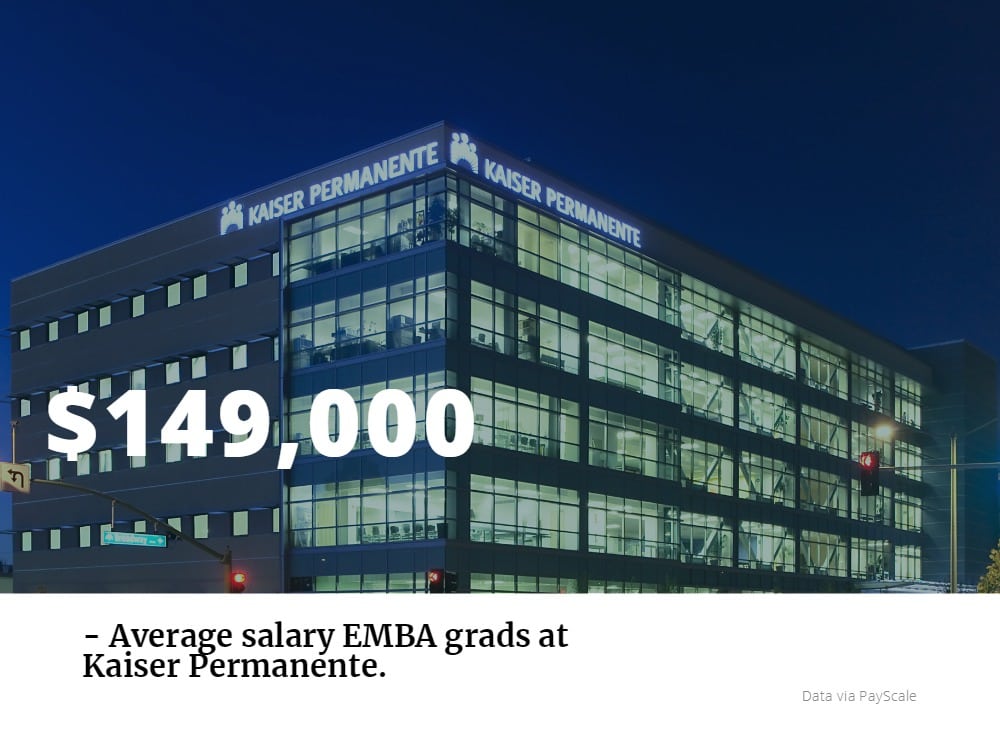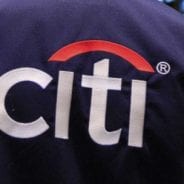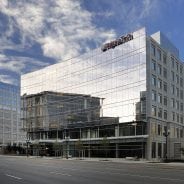Search results for :
New MBA Jobs: CitiGroup, Cisco, IDEO and More
New and exciting MBA jobs are posted to the careers pages of great companies every week. Here’s a rundown of some of the latest and greatest opportunities for MBAs at corporate offices around the United States:
The Perfect MBA Career: Portfolio Manager
If working in investment strategy seems appealing, then a job as a portfolio manager may be right for you.
Finding The Best Affordable Full-Time MBA Programs
Earning an MBA is a great way to ensure some level of financial security in the future. However, if earning the degree leaves you with mountains of debt, that security can start to seem like a pipe dream. Fortunately, there are business schools that provide some of the best affordable full-time MBA programs in the country.
Analyzing the full-time MBA rankings from U.S. News & World Report, we outline ten of the best MBA programs throughout the country that don’t come with the hefty price tag. Check out the ten programs that cost less than $25,000 per semester below.
The Best Affordable Full-Time MBA Programs

The D’Amore-McKim School of Business at Northeastern University charges $1,600 per credit for their 55-credit program. The cost comes to about $22,000 per semester, which is not bad considering the average starting salary for recent grads is $88,000. The Boston school also offers its students a corporate residency while pursuing their degree, which helps alleviate financial pressure. The average salary for the Corporate Residencies was a respectable $32.52 per hour in 2018. Moreover, 91 percent of MBAs receive job offers within three months of graduation. Students with an interest in international business can participate in the Global Consulting Project or International Field Study.

At $11,855 per semester, going to La Salle University allows students to earn their MBAs without breaking the bank. The length of the program varies depending on a student’s previous credits and scheduling choices. Students who majored or minored in business can complete their degree in 12 months, whereas students without a business major or minor may take up to 24 months. Options for specialization include: accounting, business systems and analytics, finance, general business administration, management, and marketing.
Despite the reasonable price tag, La Salle grads have gone on to work high-level positions at well-known companies like Deloitte LLP and Morgan Chase.

The University of Colorado, Boulder Leeds School of Business ranks 65th overall among the best full-time MBA programs on U.S. News, and has a welcoming price tag to back it up. For in-state residents, the program is only $900 per credit ($1,200 for out-of-state residents). Over the course of 55 credits, this comes to just $49,500 for in-state residents over the entire two years of the program: $24,750 per year.
Leeds emphasizes entrepreneurship and a global outlook. The degree electives encourage students to concentrate on finance, marketing, management, or systems-operations. Students can complement this “functional focus” with a more tailored specialization like entrepreneurship, real estate, or sustainability. MBAs are not limited to MBA courses, as the program allows them to take up to four electives in other schools at CU Boulder. Additionally, students earning their MBA in Sustainability have the opportunity to take courses in University of Colorado’s Environmental Studies, Engineering, and Law Schools.

Upstate New Yorkers will be pleased to learn that the Binghamton University School of Management costs about $17,205 (with fees) per year for in-state residents. Non-residents pay about $26,745 (with fees) per year. Binghamton also does not require that entering MBAs have a business background, though they recommend a rudimentary knowledge of calculus, as well as strong skills in English and IT. The standard four-semester MBA is open to students from all undergrad majors. The school is currently 76th on the U.S. News list. Binghamton, NY may also be a strategic career-launch location, as the city made the Forbes list of “The Best Small Places For Business And Careers.”

Internships and opportunities to hobnob abound in the U.S. capital, making DC an excellent place to earn an MBA. However, with the cost of living on the rise, finding a relatively affordable school is key to maximizing return on investment. The cost of pursuing an MBA at the Kogod School of Business at American University comes out to about $20,923 per semester, for a total cost of $83,692. And, with a mean graduate salary of $84,725, it should not take grads long to see a respectable ROI. Kogod offers features like weekly Business Leadership Luncheons, wherein local business pioneers share their experiences and insights with students. Speakers have included senior executives from PayPal, IBM, and Marriott International. Graduates of the program have gone on to work at companies like Amazon, Deloitte, and Ford Motor Company.
YOU MAY ALSO LIKE: The Five Most Valuable Online MBAs

MBAs at the Argryros School of Business—the 79th overall school on the U.S. News list—pay $1,655 per credit. Which, for the 50-credit program, averages to about $20,687 per semester. The Orange County, CA school offers tracks in accounting, business analytics, entertainment and media management, entrepreneurship, finance, global business, marketing, and strategic management. The school also offers a variety of dual degrees, including an MBA/MFA in Film & TV Producing.

The University of San Diego School of Business Administration MBA currently costs $1,420 per credit. With a 56-credit requirement for the two-year program, the cost without fees comes to around $19,880 per semester. It is tied with the aforementioned Argyros School of Business at 79th overall on the U.S. News list of the country’s best business schools.
USD’s curriculum is based on four pillars: Leadership development; business function core; corporate social responsibility, sustainability, and ethics; integrative problem solving. For students with a global mindset, the International MBA has the same cost per credit, but requires only 44 credits.

In addition to being affordable, the Lerner College of Business is located in Delaware, where tax-free shopping makes the cost of living far less daunting. The Lerner MBA costs just $825 per credit for Delaware residents, and $1,000 per credit for those from out of state. This puts total cost per semester in a range from $9,075-$11,000.
Lerner MBAs can choose from a variety of concentrations, including (but not limited to): business analytics, international business, and sport management. Students can pursue a full-time, part-time, online, or hybrid MBA. Pursuing a hybrid of online and on-campus courses may also be fiscally helpful, since online credits tend to be more cost-effective.

The CSU College of Business offers several options for students pursuing an MBA. The school has a nationally renowned online MBA program, and also offers a Global Social and Sustainable Enterprise MBA, an Executive MBA, and an Evening MBA.
According to U.S. News, tuition for the full-time program is $757 per credit for in-state students and $1,557 per credit for out-of-state students. Given the huge cost cut for Colorado natives, CSU may be a prudent choice for residents of the state.

Students who are NYC-bound might consider applying to the Pace University Lubin School of Business. The total cost of an MBA education at Lubin education can vary, as different tracks require a different number of credits. However, at $1,267 per credit, the cost can be very manageable, particularly considering its prime spot in downtown Manhattan and all of the internship and job opportunities this location presents. Particularly for those with a bent toward accounting or finance, Lubin may be the perfect launching pad for a career in the big city. A substantial 92 percent of recent grads found jobs upon graduating.
The 5 Highest Paid Toronto Internships for MBAs
Toronto is Canada’s largest city and home to leading companies in both business and finance. There’s a particularly large concentration of banks as well as media companies, publishing firms, telecommunication, IT, and film production companies. There’s a little bit of everything in the city including top MBA programs such as McMaster University’s DeGroote School of Business, Ryerson University’s Ted Rogers School of Management, and York University’s Schulich School of Business.
But where should you look for paid Toronto internships? First, the industry you choose matters. According to the 2018 employment report from the University of Toronto’s Rotman School of Management, you should stick with three industries if you want to earn the most money: law/legal services ($18,000 per month), consulting ($6,332 per month), and financial ($5,623 per month).
Specifically, you might want to check out these five high paying internships in the Toronto metro.
The 5 Highest Paid Toronto Internships for MBAs

Sun Life Financial is a Canadian financial services company headquartered in Toronto. It is as one of the largest life insurance companies in the world, spanning back to 1865. The company pulls in around $28.5 billion in revenue each year, with over 30,000 employees worldwide.
MBA students looking for an MBA internship have multiple options. In particular, there are positions in finance, HR, and real estate. There are also co-op options in the Business Leaders Internship Program. This program gives students ten weeks to work in a number of functional areas to learn where they can be successful.
According to Glassdoor, interns can expect to earn:
- Salary: $3,166 – $4,333 Per Month

Ontario Power Generation, owned by the government of Ontario, is responsible for half of the electricity generation in the Province. The company uses nuclear, hydroelectric, wind, gas, and biomass electricity. The energy diversity helps pull in about $4.73 billion in revenue each year, employing 10,840 people.
For MBA students, the company offers both winter and summer internship opportunities. Interns analyze new business opportunities, pitch marketing, complete customer research, and perform business model development.
Glassdoor reveals that an average intern earns:
- Salary: $4,160 – $5,440 Per Month

BMO Financial Group is a Canadian multinational banking and financial services company. It’s one of the big five banks of Canada and is the fourth-largest by market capitalization and assets. In fact, it’s one of the ten largest banks in all of North America with $21.7 billion in revenue each year and 45,200 employees.
YOU MAY ALSO LIKE: What MBAs Should Know About BMO Financial
An MBA internship at BMO can cover a variety of job functions from financial modeling analyst to program management, investment banking, and capital markets. Through the program, students gain hands-on experience working with a team of seasoned professionals.
According to Glassdoor, an MBA intern can expect to earn:
- Salary: $3,000 – $4,160 Per Month

The Royal Bank of Canada (RBC) is a multinational financial services company and the largest bank in the country by market capitalization. It services over 16 million clients worldwide with personal banking services and products. 2017 estimates were around $40.6 billion in annual revenue with 79,000 employees.
RBC is home to a robust internship program with opportunities to work as a data scientist, business analyst, capital markets advisor, global equities, and more. Each internship program provides MBA students with the chance to work as a strategic advisor across a variety of industries from energy to health care, technology, real estate, media, and more.
As an intern, you can expect to earn a good salary according to Glassdoor:
- Salary: $4,833 – $5,166 Per Month

TD Securities is another Canadian investment bank and financial services company, offering advisory and capital market services. It is particularly known for providing expertise in corporate and investment banking, capital markets, and global transaction services. In 2016, TD Securities earned $3.03 billion in revenue with just 3,800 employees.
As far as internships for MBA students, there are many interesting 10-week options with business tracks in corporate and specialty banking as well as retail and product. These internships provide practical, hands-on experience, and can lead to participation in the 12-month MBA Associate Track Program post-graduation.
Based on intern salaries submitted to Glassdoor, MBA students can expect to earn:
- Salary: $3,250 – $4,166 Per Month
5 Questions With University of Georgia Admissions
In the newest installment of the MetromBA “5 Questions” series, we speak with Patricia D. Zettek, Ph.D., Director of the Full-Time MBA Career Management Center at the University of Georgia Terry College of Business, and Deirdre Kane, Director of Full-Time MBA Admissions about the UGA experience, Southern culture, and more.
What is something unique about the Terry College of Business MBA experience that people may not expect?
“Candidates to our program are most often surprised by three main things:
1.) Our flexible curriculum
2.) Our personalized and customized approach to supporting our students, academically and professionally
3.) Our welcoming and diverse program culture.
We have years of experience and the strength and size of our alumni network (310,000 and counting) to support our students in being successful while in the program and after they graduate. Our career management staff knows our students well and this one-on-one attention makes a big difference by the end of the program. Students learn and practice skills they need to land their next job or internship, and also to manage their careers throughout their lives. Faculty get to know the students, and truly take an interest in their success.”
What kind of student is the ideal Terry College of Business MBA?
“We look for humility, self-awareness and the willingness to learn new things about themselves—people who have experienced a setback or two—and learned from it. The ideal candidate for the Georgia MBA program has more than just the great test scores and GPAs sought by all full-time MBA programs, we look for the students that demonstrate a roll up the sleeves and get things done attitude. These are the people who do well here.”
What do you find business school applicants often overlook during the pre-MBA process?
“I think some people limit their choices by looking only at certain things, rather than the whole picture. They may focus tightly on one factor—school rank, tuition cost, employer relationships, average salary—rather than fully thinking through what they want and need from their MBA experience. Visiting campuses, talking to current students and meeting members of the staff could offer a very different view than the one that takes into account only one or two factors. MBA programs vary widely and there is not a one-size-fits-all experience. Find a few that fit your needs and go after them.”

“We look for humility, self-awareness and the willingness to learn new things about themselves—people who have experienced a setback or two—and learned from it” – Patricia D. Zettek, Ph.D. and Deirdre Kane
What do you find most business schools are lacking?
“Lacking is a pretty strong word. I consider business school an excellent investment in a candidate’s future. I understand why you might ask though, because if you listen to the media, the MBA has been dying out since the 1940s, but that’s just not true! There continues to be a need for professionals trained to understand the complexities of our business environment and committed to doing things right. Overall MBA programs and program staff are committed to the success of their students and genuinely interested in providing their students with the best experience and the best opportunities.”
What is your favorite restaurant near UGA?
“I think Athens is one of the South’s most underrated food cities. We’re known for music and football, but not until recently have we been noticed for our food scene. Thanks to chefs like Hugh Acheson, who calls Athens home, we have many farm to table gems, like Last Resort Grill, The National, home.made, and Heirloom Café. And everyone should check out Weaver D’s, Ted’s Most Best, Clocked, The Grit, Taziki’s, and Viva Argentine! The list is long and there is something for everyone!”

Southern-inspired specialties are abound in Athens, Georgia, including at home.made, founded by New Orleans-born chef Mimi Maumus – Photo via homemadeathens.com
For more information on the UGA Terry MBA admissions, click here.
The Best MBA Internships: Midwest
The Midwest is a great place to live. Not only is it among the friendliest places in the U.S., but it’s home to some top-rated MBA programs including the University of Chicago’s Booth School of Business, Northwestern University’s Kellogg School of Management, the University of Michigan Ross School of Business, and Indiana University’s Kelly School of Business.
So, with all these great schools in the area, the question is, where should you look for your MBA internship in the Midwest?
Below, we’ve highlighted 14 of the best MBA internships spread out over the cities of Chicago, Milwaukee, Cleveland, St. Louis, and Minneapolis.

When it comes to the Midwest, Chicago is the foregone epicenter. And there’s no doubt that it’s a great city for internships with many top companies. Chicago is home to nearly 40 Fortune 500 companies while also being considered the financial and cultural hub of the area.
So, where should you look for an internship in Chicago? There are many options:
- McKinsey & Company: McKinsey is known for recruiting from a variety of Midwest schools, including Chicago Booth, Northwestern Kellogg, Indiana University Kelley, and Carnegie Mellon Tepper. In fact, last year McKinsey & Co hired 48 employees from Booth. This accounts for nearly 10 percent of the 2017 Booth MBA class.
- United Airlines: United Airlines is headquartered in Chicago, IL and has a wide variety of MBA internship opportunities available in the city. There are opportunities in marketing, financial planning and analysis, HR, legal, corporate and government affairs, and more.
- Google: For an internship with Google in the Midwest, then Chicago is where you need to be. The Google internship program has openings for students interested in business strategy, finance, hardware, people operations, product management, and more.

As the largest city in Wisconsin and the fifth largest city in the Midwest, Milwaukee is another great location for MBA internships. The city is known for manufacturing and service companies and is home to six Fortune 500 companies. In particular, the city is known for having a large number of financial service firms and health care opportunities.
In terms of internships in the city, you should keep your eye on these companies:
- U.S. Bank: An internship at U.S. Bank is a great choice if you’re looking for the opportunity to work for the fifth largest bank in the U.S. There are opportunities to intern in distributed database administration, fund services, product management, private capital management, lending services, and more.
- Northwestern Mutual: Headquartered in the city, Northwestern Mutual is home to many MBA-level internships. Students can intern in public investments, analytics, strategic sourcing, and more.
- SC Johnson: In Racine, WI, just outside of Milwaukee, MBA students can find an internship opportunity at SC Johnson. There are openings in marketing, finance, sales, research and development, manufacturing, and IT. It’s an ideal company for those interested in a career in manufacturing.

Cleveland, Ohio home to manufacturing, financial services, healthcare, and biomedical companies. Many top-rated companies call the city home including NACCO Industries, Sherwin-Williams, Applied Industrial Technologies, and KeyCorp. NASA also maintains a facility in Cleveland.
For internship opportunities in the area, look to:
- Eaton: The Eaton MBA internship program is ideal for global MBA students who are interested in the energy industry. Eaton is a $20.4 billion company with 95,000 employees around the world with MBA internships in supply chain management, human resources, and more.
- Nestle: Located in Solon, OH, just outside of Cleveland, Nestlé has an MBA internship program for students interested in marketing or brand management. Internships get the opportunity to work with the company’s global portfolio of more than 2,000 leading brands.
- KeyCorp: Headquartered in Cleveland, KeyCorp is one of the nation’s largest bank-based financial services companies with more than $134.5 billion in assets. Every year, they high MBA summer associates in investment banking

St. Louis is the cultural and economic epicenter of Missouri. As the 19th largest city in the U.S., it is considered a major economical center for service, manufacturing, trade, and tourism. The metro area is home to many major corporations including Anheuser-Busch, Boeing Defense, Energizer, Panera, Enterprise, Edward Jones, and Purina. In fact, nine Fortune 500 companies call the city home.
Top MBA internships in St. Louis include:
- Monsanto: The beleaguered Monsanto was recently acquired by Bayer to strengthen its agricultural division. The MBA internship is designed for individuals interested in digital strategy and innovation.
- Emerson: The U.S. MBA leadership program at Emerson is designed for students interested in marketing, operations, supply chain, strategy, HR, financial, or business development. Each year, the company interviews more than 400 MBA candidates to fill their roles.
- Ameren Corp: As a leader in energy, the Ameren MBA internship is ideal for candidates interested in providing new solutions to tomorrow’s energy needs. MBAs interested in environmental policy and sustainability are preferred.

Minneapolis is the larger of the Twin Cities and the 16th largest metro area in the U.S. Recognized as a global city, the economy is known for business, medicine, sports, manufacturing, and research. Five Fortune 500 companies call Minneapolis their home including Target, U.S. Bancorp, Xcel Energy, Ameriprise Financial, and Thrivent Financial.
The best MBA internships in the area include:
- Target: The Target Arrows Leadership Development Program is designed for MBA students interested in being a part of Target’s global supply chain and logistics. It’s ideal for individuals interested in operations.
- S. Bank: Headquartered in the city, U.S. Bank is home to a ten-week competitive internship for students interested in retail payment solutions, enterprise strategy, lending services, performance engineering, and more. Here’s an example of the ad for a product management intern.
New MBA Jobs: BCG, Merck, Adobe and More
There are hot new MBA jobs that need to get filled each and every week all over the world. Here are a few new openings for entry level and advance positions at a range of companies, and don’t forget to check out the best new MBA jobs right here on MetroMBA every week.
Top MBA Recruiters: Kaiser Permanente
Finding a job post-MBA is at once exciting and challenging. There are thousands of new opportunities before you that you’ll have to choose between, and that can leave you feeling overwhelmed. What happens if you choose Career A over Career B? Which employer will offer an MBA graduate the best perks and potential? What industry offers the most job satisfaction?
While there’s no single right answer, there are a few employers that stand out for MBAs. These are companies that actively recruit MBAs and have programs in place to enhance the first job experience. One such top MBA recruiter is Kaiser Permanente.
About Kaiser Permanente
Kaiser Permanente is a consortium of for-profit and not-for-profit healthcare entities based in Oakland, California. Founded in 1945, the company is made up of three distinct interdependent groups: Kaiser Foundation Health Plan, Inc. (KFHP), Kaiser Foundation Hospitals, and Permanente Medical Groups. Currently, Kaiser operates in eight states and one district (Hawaii, Washington, Oregon, California, Colorado, Maryland, Virginia, Georgia, and Washington DC) and is the largest managed healthcare organization in the U.S.
- 11.7 million health plan members
- 208,975 employees
- 21,275 physicians and 54,072 nurses
- 39 medical centers
- 720 medical facilities
- $72.7 billion in revenue
- $3.8 billion in net income
What Is Kaiser Permanente Like for MBAs?
As the largest healthcare organization in the states, Kaiser Permanente has many unique opportunities available for MBA graduates. Not only does the company host internships each summer, but they also offer multiple early career opportunities lasting anywhere from six months to two years in a variety of areas from finance to marketing, sales, and administration.
The great part about choosing Kaiser Permanente as an MBA is that it means you don’t have to choose between a health insurance company and a hospital. Kaiser rolls together health plans, hospitals, and medical groups all in one, allowing MBAs to test their skills in a variety of settings. And hire they do, each year Kaiser hires hundreds of MBAs to fill positions throughout their organization.
As for working at Kaiser, 83 percent of employees say it’s a great place to work offering great challenges (86 percent), great atmosphere (89 percent), and great rewards (88 percent). Some of those rewards include unique benefits and perks such as KP WELL (KP Women Embracing Life and Leadership), which is a program to help women learn, connect, and develop their experience. Kaiser is also known for having a healthy workforce with multiple programs and tools for keeping their employees healthy in mind, body, and spirit.
It’s no wonder that Kaiser ranks 16th overall on the Great Places to Work list of the ‘Best Workplaces in Health Care and Biopharma in 2018,’ and ranked 43rd on the Great Places to Work list of the ‘Best Workplaces for Diversity in 2017.’
Among other benefits of working for Kaiser is a healthy salary. According to PayScale, MBAs can expect to earn around $108,000. However, salary varies based on experience and job with Executive MBAs earning $149,000, and MBAs with focuses in business administration earn $112,000.

Several of the most prominent business schools to offer a healthcare-focused MBA include:
- The Wharton School – Health Care Management MBA
- Columbia Business School – Health and Pharmaceutical Management MBA
- UCLA Anderson – Health Care Management MBA
The Kaiser Permanente Careers Search
MBAs should first consider a summer internship during on the Kaiser Permanente careers search. These internship programs are in a variety of locations, including California, Washington, and Oregon. In particular, MBAs should consider the Business Functions Internship, or Northwest Internship programs.
Both internships last 10 to 12 weeks (typically June through August) with recruiting from January to April. As interns, MBAs work on real-world projects and initiatives, like developing and analyzing financial data, supporting technology initiatives, and conducting market research. Areas of interest for the corporate internships include:
- Finance
- National facilities services
- Human resources
- Internal audit services
- Marketing
- Sales
- Service and administration
Join Kaiser Permanente’s University Talent Network to learn more.
After completing an internship, MBAs can join Kaiser in one of its many early-career opportunities programs. There are multiple programs available including:
- Marketing & Sales Program: One year working on marketing and sales strategy while also undergoing professional development through job shadowing, exposure to leadership, and educational experiences.
- Finance Fellowship Program: This two-year fellowship consists of three rotation assignments and is designed for new graduate candidates interested in a finance career.
- California Administrative Fellowship Program: This 12-or-24-month fellowship consists of two or three rotations at medical centers around Northern or Southern California.
What Does Kaiser Look for in MBA Candidates?
When hiring MBAs for a full-time position or internship opportunity, Kaiser looks for individuals with technical, business, and leadership skills. In particular, candidates with strong leadership, agility, quantitative, and communication skills are highly sought after. For consideration, you need a strong interest in the healthcare industry.
To get started, search for Kaiser Permanente careers here.
5 Questions with Sacred Heart’s Exec. Director of Graduate Admissions Pam Pillo
In the newest installment of the MetromBA “5 Questions” series, we spoke with Jack Welch College of Business Executive Director of Graduate Admissions Pam Pillo about the future of the Connecticut business school, and much more.
What are you most excited about regarding the future of the Sacred Heart MBA Program?
“Next fall, Sacred Heart University’s Jack Welch College of Business will move to the new West Campus, formerly General Electric’s global headquarters. The facility will include more classrooms and facilities for faculty and students, including a finance lab, artificial intelligence and innovation facilities. The incubator space will allow students, in conjunction with investors and area businesses to develop their creative ideas for new products and programs. The Welch College of Business is vested in the success of our students and continued success of the region. The new campus will serve as an active pipeline for skilled workers to meet the needs of today’s rapidly evolving economy.”
What is a unique selling point of your school that some people may not be aware of?
“The Welch College of Business offers a personalized experience. Full-time faculty and staff are dedicated to meeting the needs of students. Classes operate on a 15:1 student faculty ratio. The Welch MBA also collaborates with area corporations including Subway, People’s Bank, Edgewell Personal Care, and Diageo to name a few. Students apply business concepts through the development of a business plan to promote a product or service both domestically and internationally.”
What parts of the MBA program should more students know about before starting their graduate school career?
“The Welch MBA features a team-based approach through the Integrated Core portion of the curriculum. A key competency developed in the Welch MBA is accountability for decisions and actions of team and self, putting team goals ahead of individual goals, with the focus on contribution to the organization.”

Jack Welch MBAs collaborate with local companies, such as Subway, People’s Bank, and Edgewell Personal Care.
What kind of students would you say your business school is most interested in?
“The Welch MBA encourages students from various academic and professional backgrounds.”
What was the last book you loved?
“Grit by Angela Duckworth”
You can check out Duckworth’s TedTalk on her work below.
Click here for more information on the Sacred Heart Jack Welch College of Business graduate admissions.
October MBA Deadlines: NYU Stern, Ivey, Lehigh, and More
Douglas Adams once wrote, “I love deadlines. I love the whooshing noise they make as they go by.” Prospective MBAs applying for business school can appreciate Adams’ humorous writing, but should do their best to not live by the British author’s procrastinating prose. That’s where MetroMBA comes in! Check out our list of upcoming MBA program application deadlines in our top metros: Continue reading…
The Politics of Purchases, Grocery Chain Rebuilds, and More – Boston News
Let’s explore some of the most interesting stories that have emerged from Boston business schools this week.
Why U.S. Grocery Chains Need More (and Better) Store-Brand Products – Harvard Business Review
Harvard Business Review recently revealed new insights into how store-brand products enable grocers to carve out a niche for themselves among more established competitors.
According to writers Marcel Corstjens and Rajiv Lal, “private-label products are essential to the profit margins of hard discounters,” like Wal-Mart, which typically sell 90 percent private-label goods compared to 15-51 percent of ordinary grocery stores, depending on where you are in the world. “Hard discounters win by only stocking products with a very high rotation.”
The two point to the miraculous feat of French supermarkets, which regained a significant market share after stores began “offering affordable goods of reasonable quality.”
In order for U.S. grocers to compete with hard discounters, the article notes that they “will have to offer private-label goods of the “right” quality at the “right” price. No easy feat, indeed.
You can read more from Corstjens and Lal here.
How Going Out Can Spur Outside-the-Box Thinking – MIT Sloan Newsroom
New research from MIT Sloan Assistant Professor of Work and Organization Studies Jackson Lu finds that people who have “had a close friendship or romantic relationship with a person from a culture drastically different from [their] own tend to exhibit higher creativity, innovation, and entrepreneurship.”
“‘Going Out’ of the Box: Close Intercultural Friendships and Romantic Relationships Spark Creativity, Workplace Innovation, and Entrepreneurship” suggests that “people cannot simply ‘collect’ intercultural relationships at a superficial level, but instead must engage in cultural learning at a deep level.”
Lu writes:
“When in an intercultural relationship, an individual should not eschew cultural differences but rather embrace them, because such differences enable one to discern and learn the underlying assumptions and values of both the foreign culture and the home culture. Without close social interactions, it can be difficult for individuals to juxtapose and synthesize different cultural perspectives to achieve cultural learning and produce creative insights.”
You can check out the rest of the article here.
How We Play Politics in the Store Aisles – Carroll School News
In a new Journal of Consumer Research study, Carroll Assistant Professor of Marketing Nailya Ordabayeva finds that “conservatives buy products they believe will signal their own superiority (big-name brands, high price tags) while liberals buy products they hope will show their uniqueness (unconventional colors or design).”
Ordabayeva’s research has “startling implications regarding the extent of our national polarization,” suggesting that people are paying very close attention to taglines like Mercedes’ “A Class Ahead” and Apple’s “Think Different.”

Professor Ordabayeva’s research finds that conservative and liberal Americans have decidedly different buying patterns, with conservatives favoring well-known brands and liberals opting for more creative choices.
“Better or Different? How Political Ideology Shapes Preferences for Differentiation in the Social Hierarchy,” can be found here and check out the rest of the entry on Carroll School News here.
New MBA Jobs: Deloitte, Visa, Fidelity and More
Whether it’s an entry level placement for recent graduates, or a position fit for a seasoned business veteran who just added an MBA to their resume, there’ lots of exciting new MBA jobs out there. This week is no different—check out some of the best new MBA jobs out there below: Continue reading…
MBA/MIT Dual Degree
Program Structure
The Virginia Tech MBA/MIT dual degree program combines the Evening MBA program option with Virginia Tech’s 100 percent online Master of Information Technology program. The VT-MIT program is jointly offered by the Pamplin College of Business and the College of Engineering.
Students can begin the dual degree program by starting in either the Evening MBA or Master of Information Technology program. After completing one degree, five courses can be double-counted towards completion of the second degree, allowing students to complete the second degree in a compressed time-frame.
Curriculum
The Virginia Tech Evening MBA curriculum is designed to provide students with a strong foundation in essential business functions while also allowing them to specialize their degree in an area of particular importance to their career goals.
Core courses in accounting and information systems, business information technology, finance, leadership, management, and marketing provide students with solid understanding of fundamental business concepts.
Students then have the option to select from one of eight areas of specialization: business intelligence/business analytics, entrepreneurial leadership and management, global business, financial management, organizational leadership, health information technology, hospitality and tourism management, and general management.
Virginia Tech’s Master of Information Technology program (VT-MIT) is a fully-online, asynchronous, graduate degree program designed for working professionals and jointly offered by the Pamplin College of Business and College of Engineering. The interdisciplinary degree program includes courses originating from five departments: Computer Science, Electrical & Computer Engineering, Accounting & Information Systems, Business Information Technology, and Management. The curriculum is regularly updated to incorporate current trends in the field and meet emerging market needs.
Class Profile
There are currently 13 students enrolled in the Pamplin College of Business MBA/MIT dual degree program. The average student is 34-years old. About 25 percent of the students are international and minority students.
VT MBA/MITs scored an average GPA of 3.34. Those enrolled have about 10 years of previous professional work experience.
Tuition, Scholarships, and Financial Aid
For the 2018-2019 academic year, Evening MBA tuition per credit hour is $1,025 and MIT tuition per credit hour is $950.
Scholarships are available to Evening MBA students who exemplify the Pamplin College of Business’ vision – to be a leader in business intelligence/analytics, innovation through entrepreneurship, and international programs – in their professional life. Scholarship amounts are determined based on availability and the number of qualified recipients.
While there are currently no MIT scholarship funds available through the university, there are many independent scholarships available to graduate students in an accredited information technology master’s program.
Admissions
Applicants for the MBA/MIT dual-degree program should apply to the degree they wish to complete first.
To apply to the Virginia Tech Evening MBA program, applicants must submit the following:
● Completed application form
● Official transcripts
● Current resume
● One letter of reference, a second letter is optional.
● A copy of the official results of your GMAT or GRE. GMAT and GRE waivers are considered.
● One required essay, a second essay is optional.
● TOEFL or IELTS if your degree was earned from an academic institution in a country where English is not the native language
● A $75 application fee
The Virginia Tech Evening MBA program will consider GMAT/GRE waiver requests. Please note that the waiver is not guaranteed, and your request will undergo evaluation by the admissions committee whose decisions are final.
Virginia Tech Evening MBA deadline dates are as follows:
Fall enrollment: July 1
April 1 for international applications
Applications received by May 1 are eligible for scholarship consideration.
Spring enrollment: Dec 1
September 1 for international applications
Applications received by October 15 are eligible for scholarship consideration
To apply to the Virginia Tech Master of Information Technology program, applicants must submit the following:
● Completed application form
● Official transcripts
● Current resume
● Three letters of recommendation
● TOEFL or IELTS if your degree was earned from an academic institution in a country where English is not the native language
● A $75 application fee
GMAT/GRE scores are not required for the MIT program at VT Pamplin.
The application deadlines for the Virginia Tech Master of Information Technology program are as follows:
Fall Enrollment: July 1
Spring Enrollment: December 1
Summer Enrollment: April 11
5 Highest Paying MBA Internships in Philadelphia
The moment you decide to earn your MBA, you should already be thinking about your MBA internship. Within the first few months of your education, you’ll be discussing your internship opportunities and soon afterward, applying. For the most part, you’ll choose your internship based on your career interests, but there’s one other aspect to consider: the pay.
MBA interns can earn impressive hourly wages, which may be a shock if you’re still thinking like an undergraduate student who worked an entire summer for free. But is an MBA internship salary something to sneeze at? It could be depending on your job function, industry, and the company you work for. So, who pays the most?
We dug into Philadelphia MBA internships to find out which companies would pay the most, and here’s what we discovered. Continue reading…
DMSB Keynote Speaker Encourages MBAs, New Startups, and More – Boston News
Let’s explore some of the most interesting stories that have emerged from Boston business schools this week.
Life is Like a Venture Investment, Biotech Entrepreneur Tells Business Graduates – D’Amore-McKim Blog
The Northeastern University D’Amore-McKim School of Business selected biotech entrepreneur Dr. Gerald Chan as the keynote speaker at the DMSB graduation ceremony last month.
Dr. Chan, whose private investment firm Morningside Group funds “life sciences startups that are working to discover new ways to treat disease,” implored the assembled crowd at Matthews Arena to “live a life that makes themselves and their loved ones proud” even if “life can be at times so scary and at other times so exhilarating.”
Dr. Chan shared a personal anecdote about his father’s refusal to accept a job at casino on ethical grounds: “Had he accepted that offer, our family would have become financially richer. But because he acted on his ethical principles against his own economic interest, my family can stand tall today.”

D’Amore-McKim School of Business graduates, during last month’s ceremony / Photo via damore-mckim.northeastern.edu
You can read the full article here for a complete overview of the ceremony.
Winning Paper Shows Network Effects Fuel Business Value and Upend Strategy – Questrom School of Business Blog
BU Questrom School of Business‘ Marshall Van Alstyne recently co-authored new research that finds that “platform businesses” that depend on high numbers of users like Microsoft, Apple, Uber, Google, and Amazon scale much faster by moving value creation from “internal production to external orchestration.”
In “Platform Ecosystems: How Developers Invert the Firm,” Van Alstyne and his co-authors conclude that this approach will reverberate through “every part of a business, from marketing to operations to human resources.”
“Instead of a firm doing all its own marketing, consumers can add value through viral marketing. Instead of AirBnB incurring operating costs of a hotel stay, ecosystem partners bear those costs.”
“Instead of hiring employees inside the firm, platforms rely on freelancers outside the firm. In each of these instances, the value-creating activity shifts from inside to outside the firm. This shift affects all of the traditional business functions. It also has profound implications for fair division of wealth in society.”
You can read the full article here and the complete paper here.
25 MIT Startups To Watch – MIT Sloan Newsroom
On Saturday, September 8, Bill Aulet, Managing Director of the Martin Trust Center for MIT Entrepreneurship told the crowd at the MIT Kresge Auditorium, “We’re not just going to be doing another dating app.”
“We’re going to be doing things like addressing inclusion in society, making a more informed citizen throughout the world, cybersecurity, mental health, urbanization, improving ed-tech, improving health care. These are significant problems that the brightest people in the world should be working on, and those people are MIT students.”
The ambitions Aulet spoke about were created from the 25 startups built within the MIT delta v accelerator, which you can check out here.
Top MBA Recruiters – ESPN
When researching MBA programs, the inevitable questions will arise; what will I do with my degree? What will potential employers recognize about my background aside from grades and standardized test scores? Will my extracurricular resume benefit me in the future? The pursuit of a sports management MBA may help to answer these questions. As sports transforms into a multi-billion dollar industry, b-school students are well-positioned to pursue these emerging careers. The George Washington University Business School, Degroote School of Business at McMaster University, and UCLA Anderson School of Management are several of many nationwide programs offering a sports management MBA. And there may be no bigger sports destination, than Bristol, CT landmark ESPN.
Hot MBA Jobs: Computer and Information Systems Manager
For those looking to pursue a management career at the tech end of the business world, Computer and Information Systems Manager may be a promising career to pursue.
The U.S. Bureau of Labor Statistics estimates the growth rate for this job at 12 percent over the next eight years. But, are you not sure where to begin? Below, we’ve put together a guide to help you determine if this is the career for you.
What is a Computer and Information Systems Manager?
The Computer and Information Systems Manager (or IT Manager) runs the company activities related to computers and tech. They must assess the needs of an organization to determine the appropriate hardware and software to both meet demands of and enhance the efficiency of company business. In addition to installing and maintaining hardware and software, IT Managers must stay abreast of new tech developments so that they can pitch ideas to upper-management should they identify an opportunity to implement technology that would advance the company’s mission. The IT Manager also directs and organizes the efforts of the lower-level positions in the IT department.
There are different types of Computer and Information System Managers, so duties may be more specifically tailored depending on the specific title. For example, an IT Security Manager would work with the tech as it pertains to protecting an organization’s security interests.
Am I A Good Fit?
IT Managers possess solid analytical skills. People in this role need to be able accurately evaluate a company’s needs and determine which products would enhance productivity. They must also be able to analyze any tech and management issues to ensure that their department runs smoothly. They are solid, decisive leaders and creative thinkers. Communication skills are essential, as IT Managers must communicate directions to those working under them, as well as deliver presentations to higher-level execs.
In 2017, the average base pay for a Computer and Information Systems Manager, according to Glassdoor, was $106,092 in the United States.

Education and Where to Begin
The minimum degree requirement for a Computer and Information Systems Manager is generally a bachelor’s with a tech-related major. However, according to the U.S. Bureau of Labor Statistics, companies often require graduate degrees, and earning an MBA could prove to be a huge asset. If you are looking to pursue this title, it may be beneficial to start with entry-level tech positions in your field to gain a few years of experience before applying to a manager position.
An MBA program with a top-notch tech education may be a good place to start if you’re hoping to become an IT Manager. In 2018, U.S. News made a list of the best MBA Information Systems programs. Below, we’ve pulled some of our favorite MBAs from the list:
Sloan School of Management – MIT
It should come as no surprise that MIT Sloan tops the list of best Information Systems programs. MIT has long been hallowed ground for the technologically-inclined, so it makes sense that the school’s MBA program also caters to those with a bent toward tech, with 26.2 percent of the 2017 graduating class pursuing careers in the software and internet industries.
McCombs School of Business – University of Texas at Austin
McCombs, which has a nationally-ranked MBA in Information Systems program, is a desirable choice for the STEM-savvy. According to the McCombs employment report, 30 percent of the class of 2016 pursued jobs in the tech industry.
Scheller College of Business – Georgia Tech
Georgia Tech’ Scheller College of Business is an excellent choice for aspiring IT Managers. Forbes states, “Because many students are interested in more quantitative and technical areas, such as operations management and information technology management, Scheller is often viewed as a heavily quantitatively based program.” Roughly 21 percent of the Scheller class of 2017 landed tech-related jobs.
Leavey School of Business – Santa Clara University
For Silicon Valley hopefuls, the Leavey School of Business may be a wise school to consider. With flexible options like the Online and Evening MBA’s, Leavey allows students to tailor the program to their schedule. This may be desirable for those trying to balance internships or work and family life.
New SMU Deadlines and Essay Questions Revealed
The newest Southern Methodist University MBA deadline dates for the Cox School of Business are here. Mark your calendar with the details below.
SMU Deadlines
Round One
Deadlines: October 15, 2018
Round Two
Deadlines: December 3, 2019
Round Three
Deadlines: January 7, 2019
Round Four
Deadlines: March 4, 2019 (Final International Deadline)
Round Five
Deadlines: April 29, 2019 (Final Domestic Deadline)
SMU Cox is accepting applications after April 29 on a rolling basis.
SMU MBA Essay Questions
1. (All applicants) “What are your post-MBA goals upon graduation? Please be as specific as possible, which might include desired roles, target companies, and/or industry.”(250 word limit)
2. (All applicants) “In three words, how would a coworker or professional mentor describe you? In three words, how would your closest personal friend describe you?” (six word limit)
3. (Full-Time, Fast Track, JD/MBA students only) “Think of an event that has changed your perspective in the last three years. Describe how this event has impacted your personal or professional outlook.” (250 word limit)
4. (Full-Time, Fast Track MBA applicants only) “Business is an ever changing and evolving entity. Individual’s plans and interests can change as a result of industry downturns and/or emergence of new opportunities. Keeping an open mind while navigating your career is an essential component of success. Should the short-term goals you provided above not materialize, what alternative direction would you explore?” (250 word limit)
5. (MA/MBA students only) “How do you plan to make an impact on the arts/non-profit community and how specifically would your graduate education help you do so?” (250 word limit)
6. (MA/MBA students only) “Tell us about a time in the past three years your opinion about an arts/non-profit organization was changed and how.” (250 word limit)
Check out the official SMU Cox website for more application information.



















